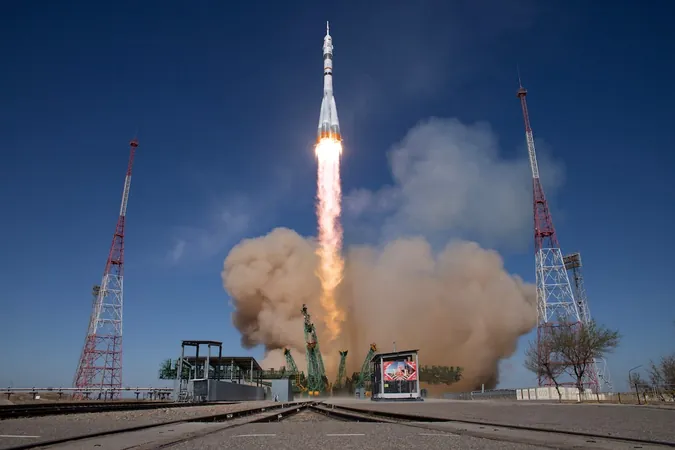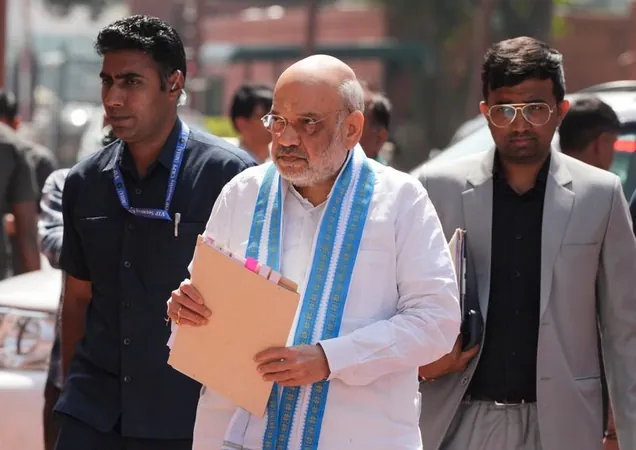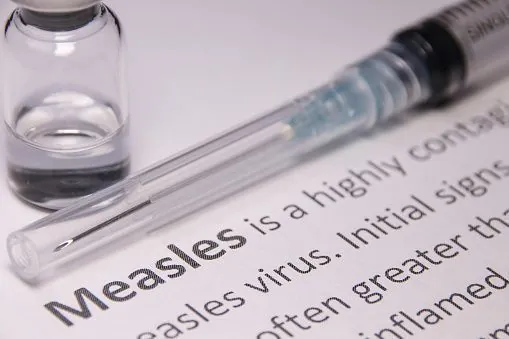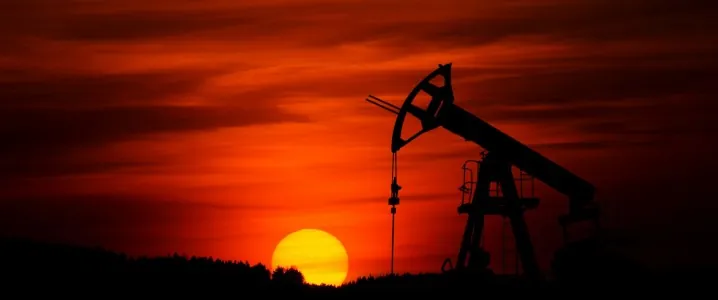
American Astronaut Jonathan Kim Joins International Space Station Crew Aboard Russian Soyuz Rocket
2025-04-08
Author: Benjamin
In a significant step for international space collaboration, a Russian spacecraft successfully transported American astronaut Jonathan Kim and two Russian cosmonauts to the International Space Station (ISS) on Tuesday. This mission underlines the ongoing cooperation between Russia and the U.S. in the realm of space exploration, despite existing geopolitical tensions.
The launch took place from the Baikonur Cosmodrome in Kazakhstan, with the Soyuz 2.1a rocket carrying Kim, alongside Russian cosmonauts Sergei Ryzhikov and Alexei Zubritsky. After a journey lasting approximately three hours, the spacecraft docked with the ISS, as confirmed by Russia's Roscosmos state space corporation.
Upon arriving at the ISS, the crew was warmly welcomed, with visuals showing Kim and the cosmonauts embracing their fellow astronauts. The station now hosts a total of 10 crew members, including four astronauts from NASA, five Russian cosmonauts, and Japanese astronaut Takuya Onishi.
During his upcoming eight-month tenure at the ISS, Kim is set to engage in a wide array of scientific research. His work will encompass technology development, Earth science, biology, and human research, among other vital fields, according to statements from NASA.
Kirill Dmitriev, President Vladimir Putin’s investment envoy, celebrated this moment as a testament to the historical partnership between the U.S. and Russia in terms of space exploration. He referenced the landmark Apollo-Soyuz mission of 1975, which marked the first-ever crewed international space collaboration and symbolized a thaw in Cold War rivalries.
Despite the backdrop of U.S. sanctions against Russia over its actions in Ukraine, space has remained a notable exception where cooperation has endured. Dmitriev has proposed potential joint ventures, including investment opportunities in the Arctic and the development of Russian rare earths, and suggested that Moscow could supply a small nuclear power plant for ambitious Mars missions led by Elon Musk's SpaceX.
Nevertheless, as the International Space Station approaches the end of its operational lifespan, Russia is pivoting towards independent space endeavors. Plans are in place for the launch of the first two modules of a new Russian space station by 2027. Additionally, Russia appears to be enhancing its cooperation with China for future space explorations, marking a new chapter in international space relations.
Stay tuned for more updates on this exciting journey and the future of space exploration!









 Brasil (PT)
Brasil (PT)
 Canada (EN)
Canada (EN)
 Chile (ES)
Chile (ES)
 Česko (CS)
Česko (CS)
 대한민국 (KO)
대한민국 (KO)
 España (ES)
España (ES)
 France (FR)
France (FR)
 Hong Kong (EN)
Hong Kong (EN)
 Italia (IT)
Italia (IT)
 日本 (JA)
日本 (JA)
 Magyarország (HU)
Magyarország (HU)
 Norge (NO)
Norge (NO)
 Polska (PL)
Polska (PL)
 Schweiz (DE)
Schweiz (DE)
 Singapore (EN)
Singapore (EN)
 Sverige (SV)
Sverige (SV)
 Suomi (FI)
Suomi (FI)
 Türkiye (TR)
Türkiye (TR)
 الإمارات العربية المتحدة (AR)
الإمارات العربية المتحدة (AR)